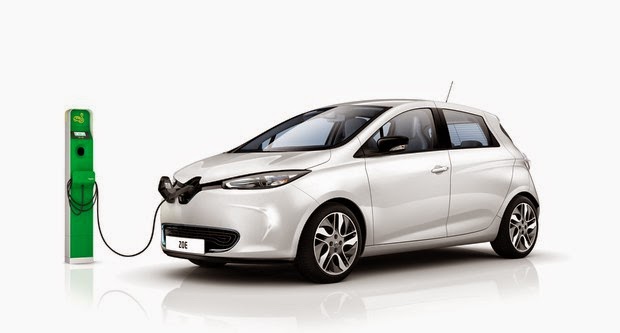- The company badly missed sales projections of 4,000 Fluence ZE sales in 2012 in Israel; instead the company has sold less than 500 of those cars
- The company is running a much steeper deficit than originally projected
- Investors are openly wondering when Better Place will become profitable, and are losing confidence
That tells us that a battery exchange network has a higher capital cost overhead than does a fast charging station network. Especially when you consider that installed costs for fast charging stations are falling (slowly). This makes sense because the Better Place system requires more equipment than does a fast charging station.
These problems tell us that Better Place is failing to convince Israeli car owners to buy into the electric car concept. That’s even though Israel seems like the perfect place to launch electric cars.
In the short-medium term we’ll expect to see more electric cars with fast charging capability, especially as the SAE DC Fast Charging system becomes available in cars. This will erode the need for a battery exchange system because it removes one of the issues Better Place seeks to address.
I already noted this when discussing the Renault ZOE following the 2012 Paris Auto Show![]() . The ZOE had always been positioned as participating with the Better Place battery exchange system, but at the Paris Auto Show nary a peep was mentioned about that feature. Instead the 43 kilowatt three phase AC (AC level 3) fast charging system was given the limelight, because that feature allows a half hour full recharge. Renault is planning to build a network of those fast charging stations throughout France, for example. That led me to post a kooky theory of the week suggesting Renault is backing away from Better Place, which would leave Better Place in a world of hurt over supply of compatible electric cars. That is, except for the plan between Better Place and Coda for Coda to supply electric cars for an electric taxi service in the SF Bay Area
. The ZOE had always been positioned as participating with the Better Place battery exchange system, but at the Paris Auto Show nary a peep was mentioned about that feature. Instead the 43 kilowatt three phase AC (AC level 3) fast charging system was given the limelight, because that feature allows a half hour full recharge. Renault is planning to build a network of those fast charging stations throughout France, for example. That led me to post a kooky theory of the week suggesting Renault is backing away from Better Place, which would leave Better Place in a world of hurt over supply of compatible electric cars. That is, except for the plan between Better Place and Coda for Coda to supply electric cars for an electric taxi service in the SF Bay Area![]() . Another kooky theory says Coda may start supplying cars to Better Place.
. Another kooky theory says Coda may start supplying cars to Better Place.
In the meantime the indication is that Better Place’s new CEO, Evan Thornley, is going to propose refocusing the company on a “service station” model rather than focusing on selling electric cars. Better Place’s focus would be on operating the battery exchange stations, letting car makers take care of car sales. This makes sense because those stations are Better Place’s core competency, while car manufacturing and sales are the core competency of the automobile industry. But will Better Place be able to pivot quickly enough?
Here’s some articles from the Israeli press:-
http://www.jweekly.com/article/full/66901/better-place-to-lay-off-up-to-half-its-staff/![]()
http://www.haaretz.com/business/can-the-israel-corporation-be-saved-from-itself.premium-1.476087![]()
http://www.globes.co.il/serveen/globes/docview.asp?did=1000798389&fid=1725![]()
http://www.haaretz.com/business/better-place-s-deputy-ceo-quits-1.478015![]()
http://www.globes.co.il/serveen/globes/docview.asp?did=1000800395![]()
http://www.haaretz.com/business/ceo-better-place-to-start-looking-for-new-direction-1.479146![]()
- Highway design could decrease death and injury risk, if “we” chose smarter designs - March 28, 2015
- GM really did trademark “range anxiety”, only later to abandon that mark - March 25, 2015
- US Government releases new regulations on hydraulic fracturing, that some call “toothless” - March 20, 2015
- Tesla Motors magic pill to solve range anxiety doesn’t quite instill range confidence - March 19, 2015
- Update on Galena IL oil train – 21 cars involved, which were the supposedly safer CP1232 design - March 7, 2015
- Another oil bomb train – why are they shipping crude oil by train? – Symptoms of fossil fuel addiction - March 6, 2015
- Chevron relinquishes fracking in Romania, as part of broader pull-out from Eastern European fracking operations - February 22, 2015
- Answer anti- electric car articles with truth and pride – truth outshines all distortions - February 19, 2015
- Apple taking big risk on developing a car? Please, Apple, don’t go there! - February 16, 2015
- Toyota, Nissan, Honda working on Japanese fuel cell infrastructure for Japanese government - February 12, 2015














